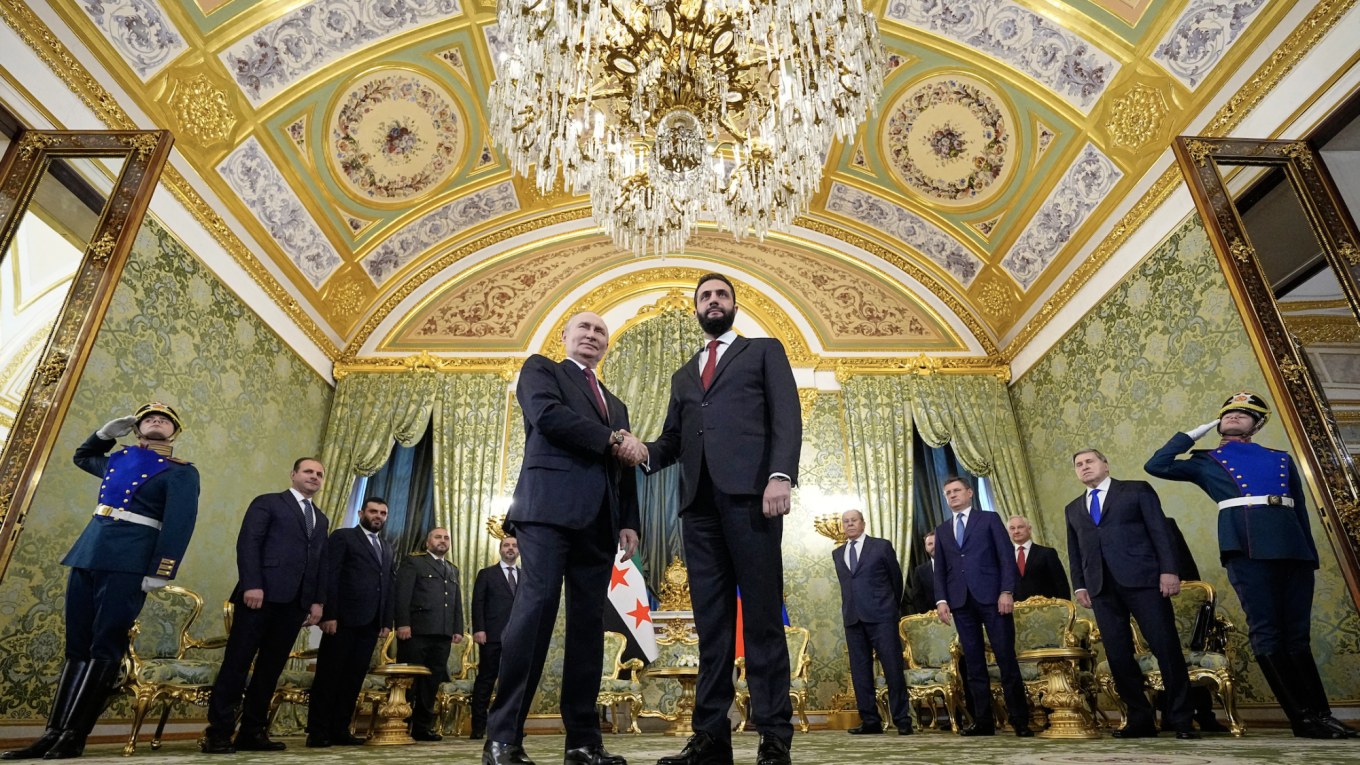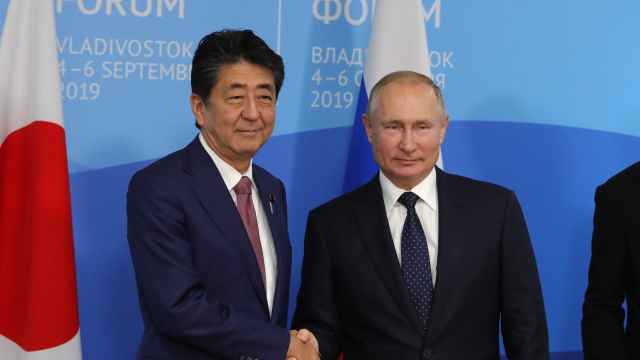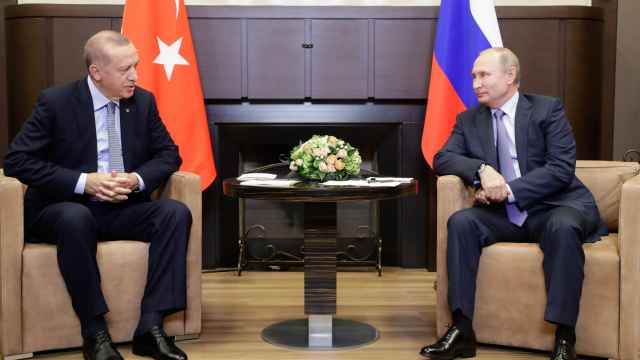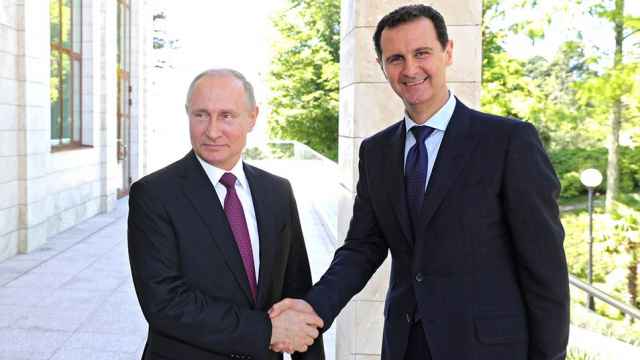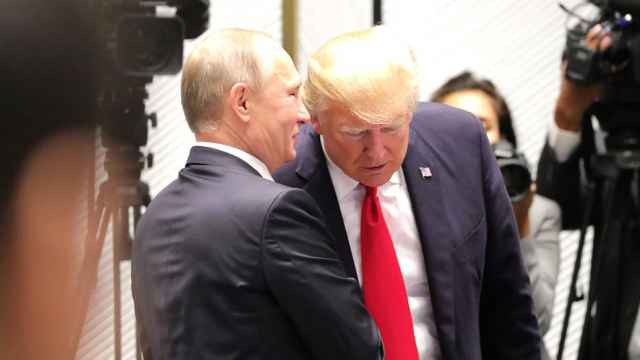Syrian leader Ahmed al-Sharaa met with President Vladimir Putin at the Kremlin on Wednesday, in his first official visit to Russia since the overthrow of Moscow’s longtime ally Bashar al-Assad.
Sharaa told Putin that he wanted to “redefine” bilateral relations with Russia, after both sides said ahead of the meeting that political, economic and humanitarian issues would be discussed between the two leaders.
“We are trying to restore and redefine in a new way the nature of these relations so there is independence for Syria, sovereign Syria and also its territorial unity and integrity and its security stability,” Sharaa said during a televised sit-down at the Kremlin.
Putin told Sharaa that Russia and Syria have always enjoyed “friendly relations,” adding that he hoped those ties would continue to strengthen even as Syrian society continues to undergo major changes under the new regime.
Despite the warm words, Sharaa is expected to press Putin behind closed doors to hand over Assad for trial over alleged crimes against Syrians. On Tuesday, Reuters reported the Assad government had carried out a secret operation to move tens of thousands of bodies from an exposed mass grave to a hidden site in the desert east of Damascus.
A Syrian government official, speaking to AFP on condition of anonymity, said the talks on Wednesday would also include discussions on rearming Syria’s military and the status of Russia’s bases in the country.
Sharaa, a former leader of the Syrian branch of Al Qaeda, led rebel forces into Damascus in December 2024 and formed a new government after Assad fled the capital. Russia later granted the ousted leader asylum.
Since Assad’s fall, the new government in Syria has sought to maintain stable relations with Moscow despite Russia’s earlier support for the Assad regime. In July, Syrian Foreign Minister Asaad al-Shaibani became the first senior official of the new administration to visit Russia.
Russia’s naval facility in Tartus and its air base at Hmeimim — Moscow’s only military outposts outside the former Soviet Union — remain central to discussions over the future of bilateral ties.
AFP contributed reporting.
A Message from The Moscow Times:
Dear readers,
We are facing unprecedented challenges. Russia's Prosecutor General's Office has designated The Moscow Times as an "undesirable" organization, criminalizing our work and putting our staff at risk of prosecution. This follows our earlier unjust labeling as a "foreign agent."
These actions are direct attempts to silence independent journalism in Russia. The authorities claim our work "discredits the decisions of the Russian leadership." We see things differently: we strive to provide accurate, unbiased reporting on Russia.
We, the journalists of The Moscow Times, refuse to be silenced. But to continue our work, we need your help.
Your support, no matter how small, makes a world of difference. If you can, please support us monthly starting from just $2. It's quick to set up, and every contribution makes a significant impact.
By supporting The Moscow Times, you're defending open, independent journalism in the face of repression. Thank you for standing with us.
Remind me later.


